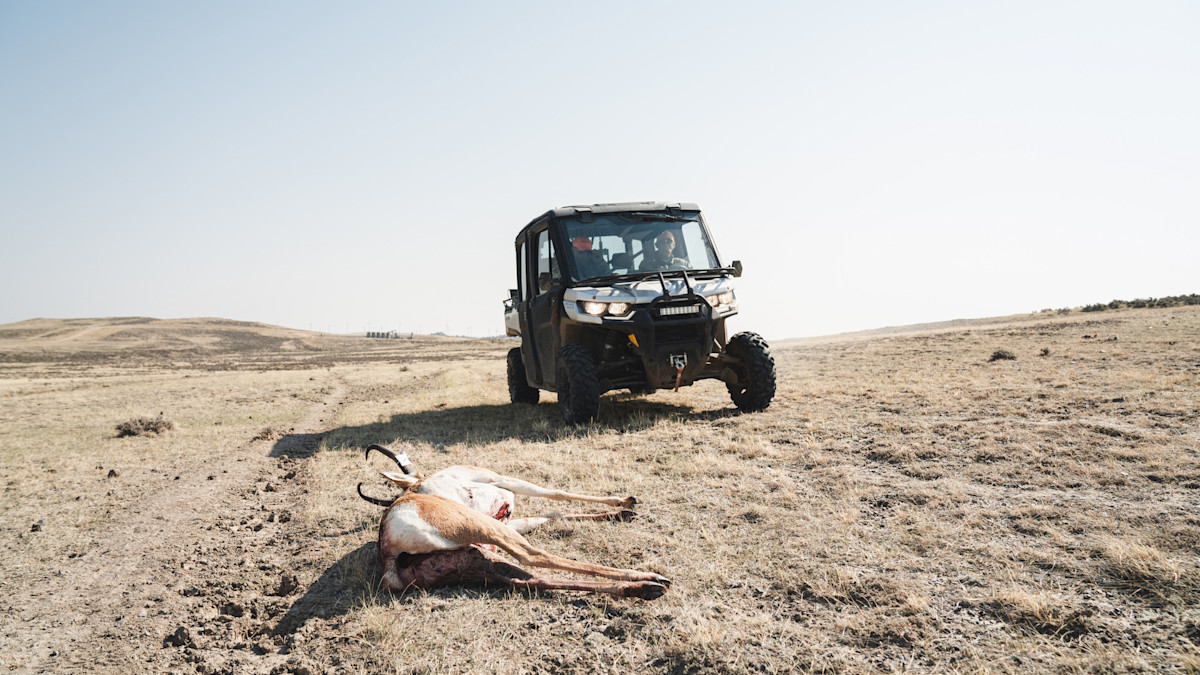BLM Director: New Conservation Leases ‘Won’t Shut Down Public Access’

The director of the Bureau of Land Management (BLM) said that hunters and other public land users won’t be barred from public land managed under the agency’s controversial new “conservation lease” program.
“Let me be hyper-clear right off the top: these leases would not shut down public access. Their whole reason for being is to improve habitat, but they don’t shut down access,” BLM Director Tracy Stone-Manning told MeatEater’s Director of Conservation, Ryan Callaghan, during an appearance on his podcast, “Cal’s Week in Review.”
The BLM’s proposed “Conservation and Landscape Health” rule would, among other things, elevate conservation and restoration activity to the same level as other types of land use. It would allow organizations and businesses to take out 10-year conservation leases that would give them the option to conserve or restore the land.
Stone-Manning explained that lands will stay open to most recreational use throughout the 10-year lease. “The lands stay open to what the law calls ‘casual use’–hikers, bikers, hunters, non-commercial, non-permanent use,” she said.
Stone-Manning’s clarification comes as the U.S. House of Representatives considersa billthat would prohibit the BLM’s rule from moving forward. Some House Republicans along with western state governors have criticized the rule as an overreach of federal power and out of step with the BLM’s historic multiple-use policy.
“In short, this rule would devastate rural economies across the West under the guise of conservation. The rule would only further this administration’s radical preservationist agenda,” said Arkansas Rep. Bruce Westerman at arecent hearingof the Natural Resources Committee.
Westerman worried that the rule would prohibit commercial guiding and outfitting services on BLM land, and he wondered what the rule means when it says public lands can be “temporarily” closed to public access under a conservation lease.
“As a lifelong hunter and fisherman myself, I’m deeply concerned that this will have devastating effects on the outdoor recreation economy,” Westerman said. “The American people could be blocked from accessing an area under a conservation lease for the majority or entirety of the lease’s 10-year term.”
The rule explains that a conservation lease “would not in and of itself preclude the public from accessing public lands for noncommercial activities such as recreation.” Some public lands could be “temporarily closed” to allow for restoration or habitat improvements, but “in general, public lands leased for conservation purposes under the proposed rule would continue to be open for public use.”
When asked to clarify these “temporary” closures, Stone-Manning imagined a hypothetical conservation lease on a riparian area that needed serious restoration work. She said public land users might see fencing around that riparian area but “absolutely not” around the entire lease.
“For public safety reasons, you might want to close the site while big equipment is in there doing its thing,” she said. “That’s what we were envisioning in the rule. Basic, pragmatic steps that we take in all of the work we do, whether it’s a solar field or an oil and gas well pad. When there’s big construction going on we want to keep people safe.”
The rule itself does not contain this kind of specific scenario nor does it offer a time period within which a parcel of land would have to be re-opened.
This is perhaps the kind of clarification the agency will make as it prepares its final version of the rule. Stone-Manning expects the final rule to be released in about a year after the agency wades through public comment.
“We’ve been thrilled by the level of public engagement around this, so we need to dig in and see what the public has to say to figure out what it’s going to look like on the back end,” she said. The BLM extended the public comment period to July 5, and anyone can submit a comment onlinehere.
Ultimately, Stone-Manning envisions conservation leases as a tool to ensure all the other uses of BLM land continue in perpetuity.
“The goal is to improve landscape health so we can ensure our multiple-use mission into the future,” she said. “I’m interested in putting wildlife habitat back on the board. We’re not creating any more land, so we’ve got to make sure that the land we’ve got is as robust as possible to support wildlife and clean water.”
To hear more about the kinds of land that might fall under a conservation lease and the types of organizations that might apply for one, check out the latest episode of “Cal’s Week in Review.”
Shop
Sign In or Create a Free Account
Related

Public Lands & Waters
BLM Director: New Conservation Leases ‘Won’t Shut Down Public Access’

Public Lands & Waters
New BLM Rule Could Fundamentally Change Public Land Management


